One thing I always do when travelling is to have a picnic in the middle of a popular tourist destination. Preferably early in the morning when you have the place to yourself. There’s nothing like spreading out a blanket or jacket on the grass and settling down to enjoy your morning meal. Beautiful sites surround you, and you’ll be entertained by all the people meandering in to explore. Since we were still a bit jet-lagged, we were able to get up extra early and head outside to walk down to the Imperial Palace Gardens. It was still a little brisk, so we grabbed a few hot vending machine coffees for the stroll.
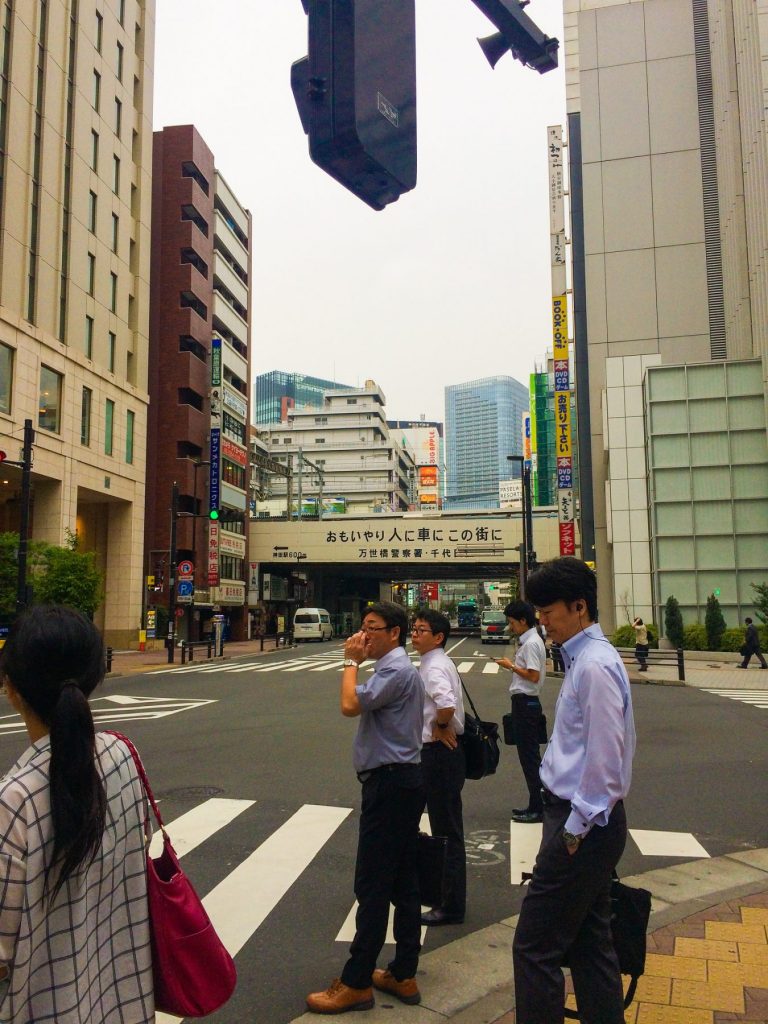
As we went, we couldn’t stop looking at all the incredible architecture sprawling up around us as we went. There is ALWAYS something to look at in Tokyo. Something you didn’t see before or something new to discover around the next corner.
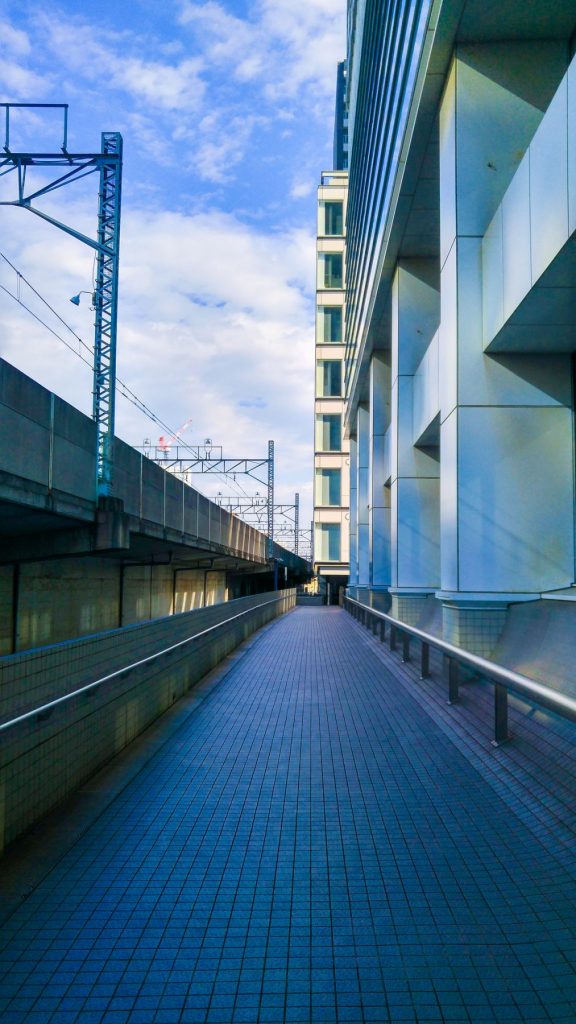
Before entering the walls of the Imperial Palace Gardens, you must cross the Hibya moat. The sun was out in full force the morning we arrived, and the waters were a brilliant bright green shade. The moat surrounds the entire length of the garden encircling a tall stone wall, once used for to protect the castle.

Today, the gardens are the only accessible part of the Imperial Palace available every day. The Palace is still the primary residence of the Emperor. Their current home is a more modern building as it was finished in 1993 and located in the Fukiage Gardens. Much like Buckingham Palace, it is not accessible to the public except for private guided tours. The public is also welcomed into the residence during the Emperor’s birthday and on New Years as both are huge celebration days in Japan. But the gardens are always open for anyone to walk freely around and explore.
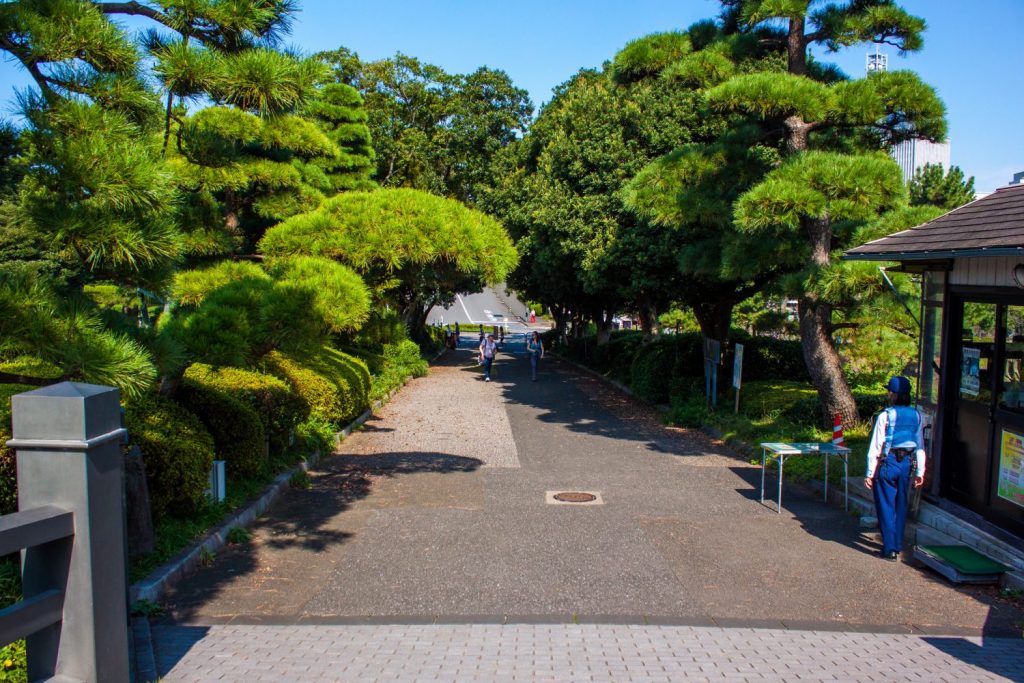
We entered through the Kitahanebashi-mon. This is the northern drawbridge gate. Just past the gate, you’ll see a large stone wall, the site of the old Edo castle. The old drawbridge is now fixed to the ground and provides easy access into the gardens.
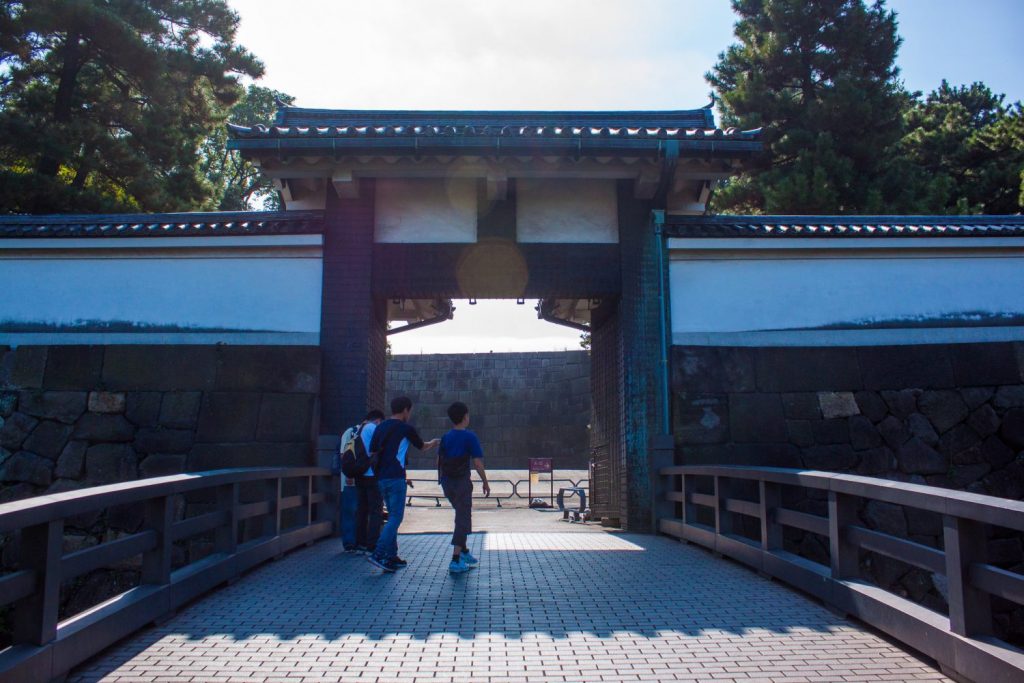
Walking inside the first thing we noticed was just how green everything was. Almost blindingly so. Despite it almost being Halloween it seemed like this little oasis had just exploded into springtime.
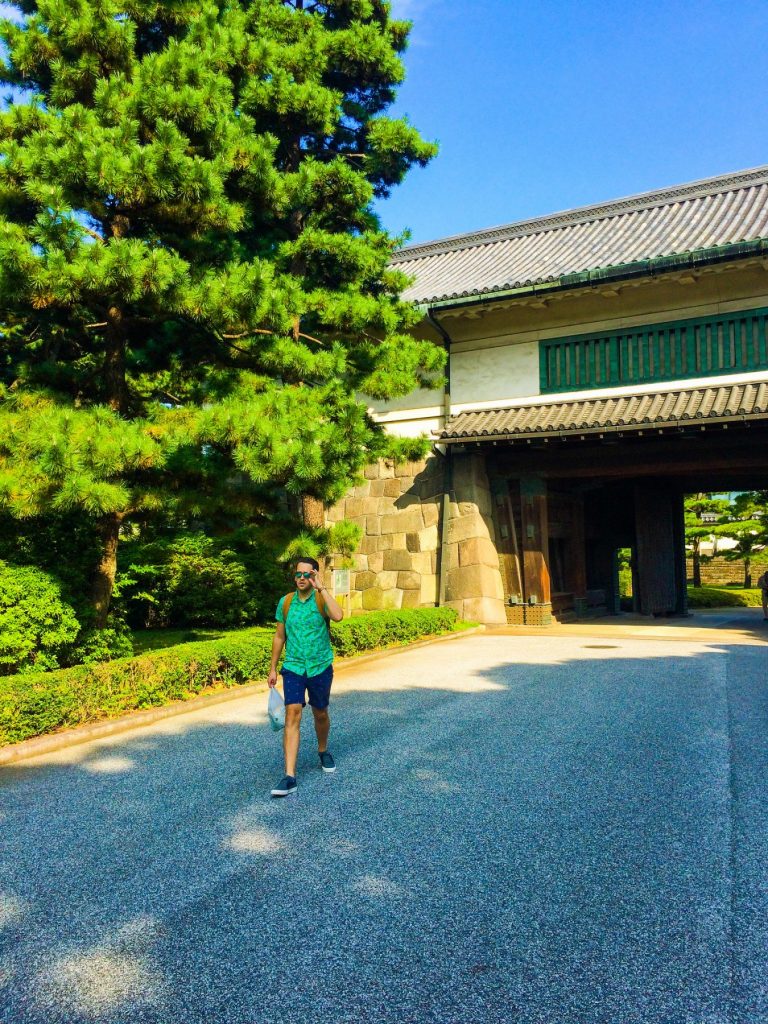
Maps of the gardens can be found throughout the grounds, or you can opt to walk aimlessly around and discover for yourself all the secrets this garden has to offer. I’m a map nerd and opted for this choice.
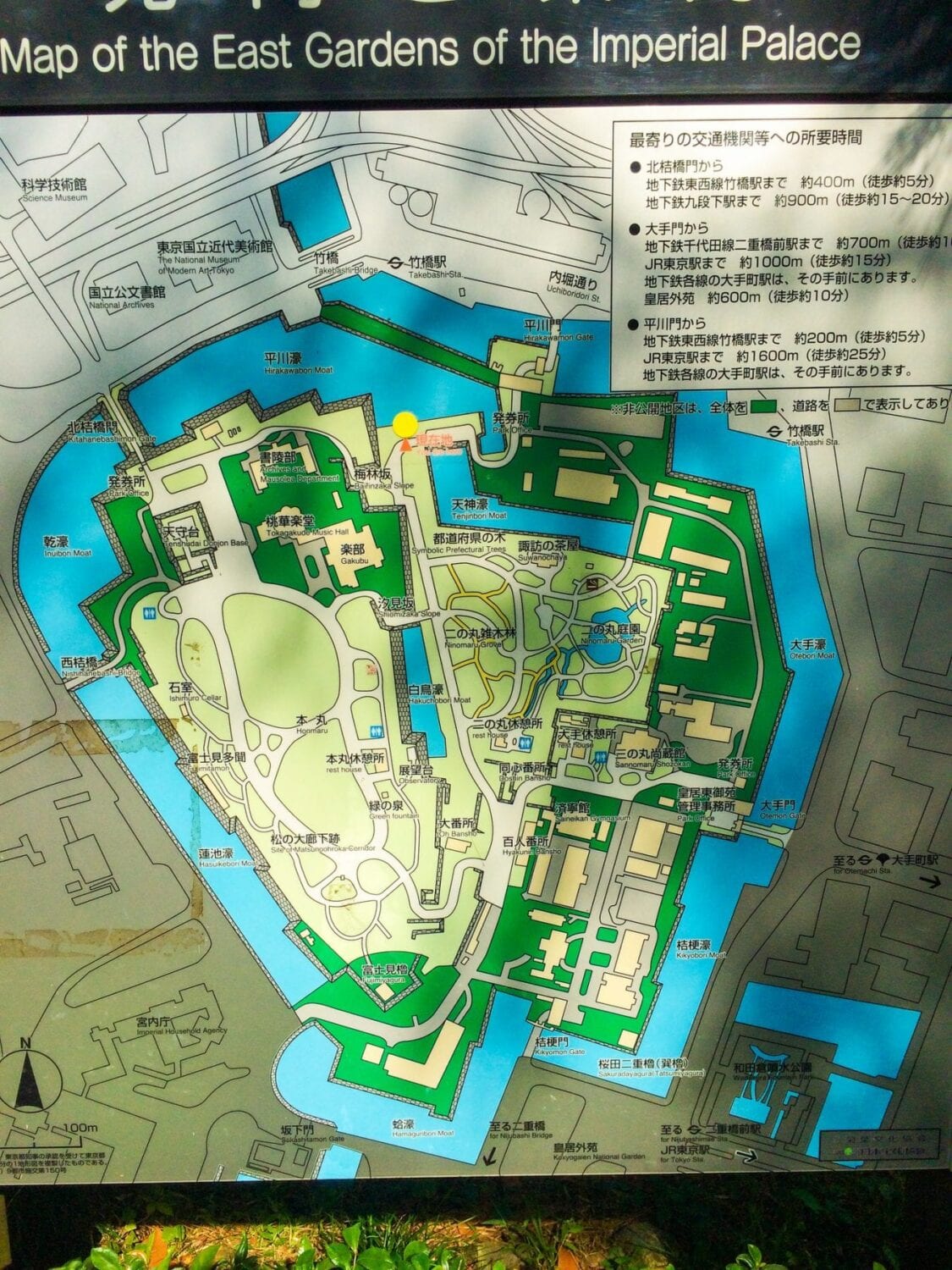
We made our way to the centre of the gardens where there was a huge lawn perfect for sitting and looking out at all the different landscapes. We had stopped at 7/11 before arriving and procured some delicious breakfast goods. Breakfast in Japan is unreal. Not just simple granola bars and oatmeal. I bought myself a fresh salmon onigiri; the best handheld treat for any time of the day.
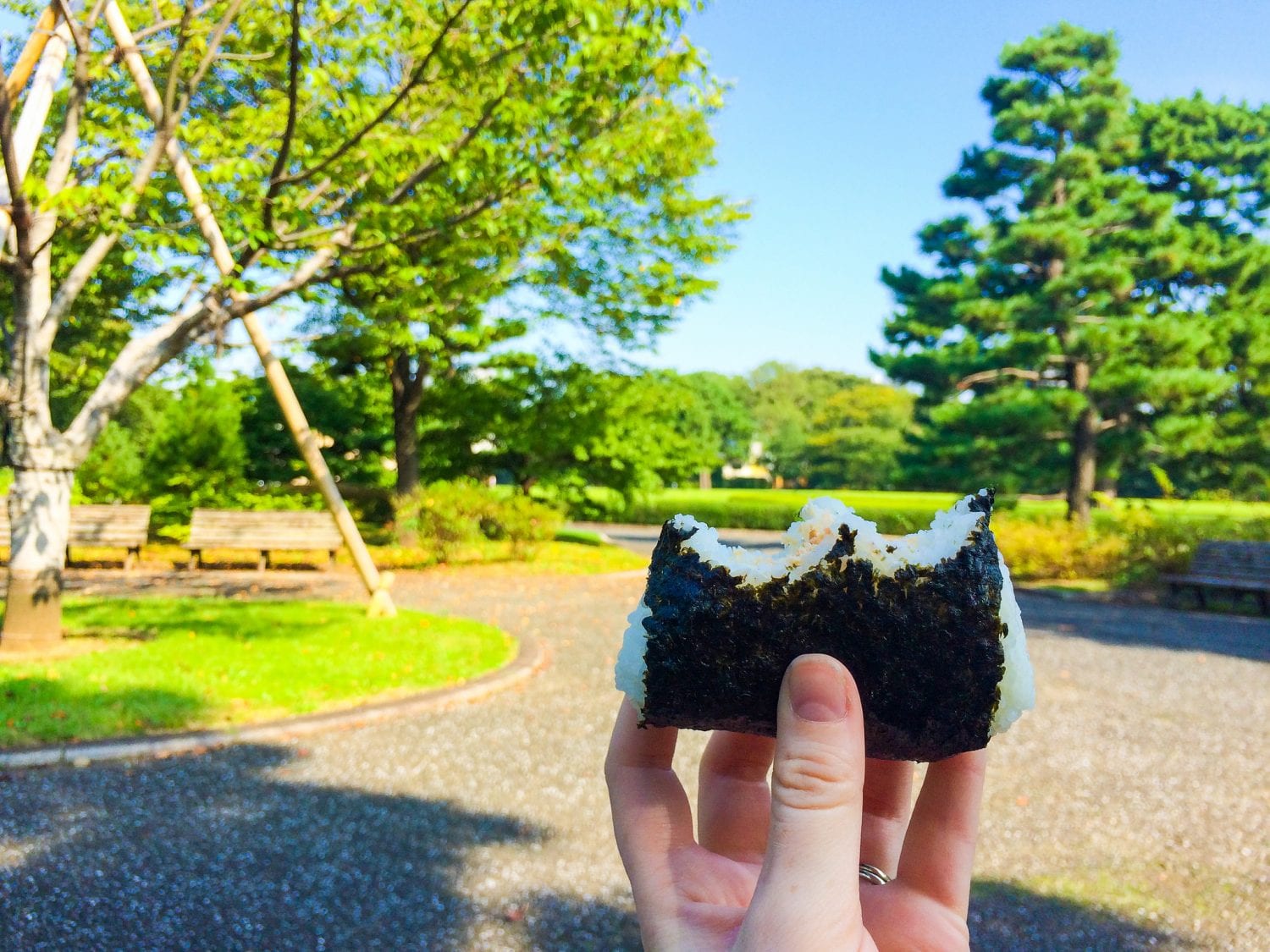
But the onigiri was only the appetiser. For our main course, we’d picked up a 7/11 breakfast bento. A set meal complete with rice, shrimp tempura, smoked salmon, pickled beans and various other things I didn’t even know what they were but tasted delicious. They have these on offer every day in almost every convenience store in Japan, and unlike convenience store food in Canada, this stuff is amazing! Plus, they will even heat it up for you, so it tastes just as fresh as when it was made.

From our spot on the lawn, we had the best view of the gardens around us but also of the city skyline behind the trees. The gardens alone take up over 3.41 square kilometres, so it was great to sit in the middle and have it all surround you.
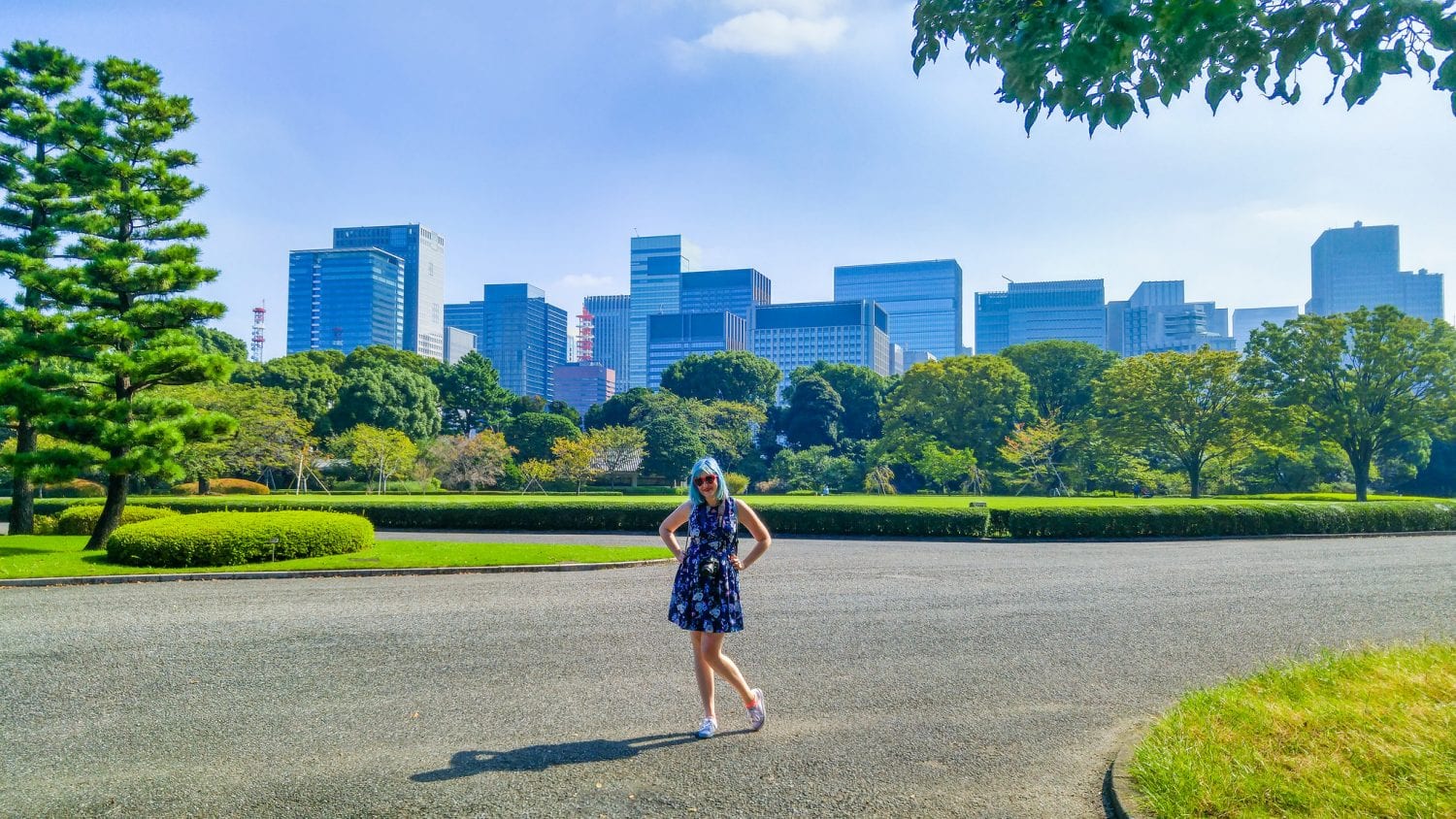
After breakfast, we started to walk around the perimeter of the garden. Giant tree spilt out over the walkways. These giant trees have been here since the 1600’s. If they only could talk, what stories they could tell…
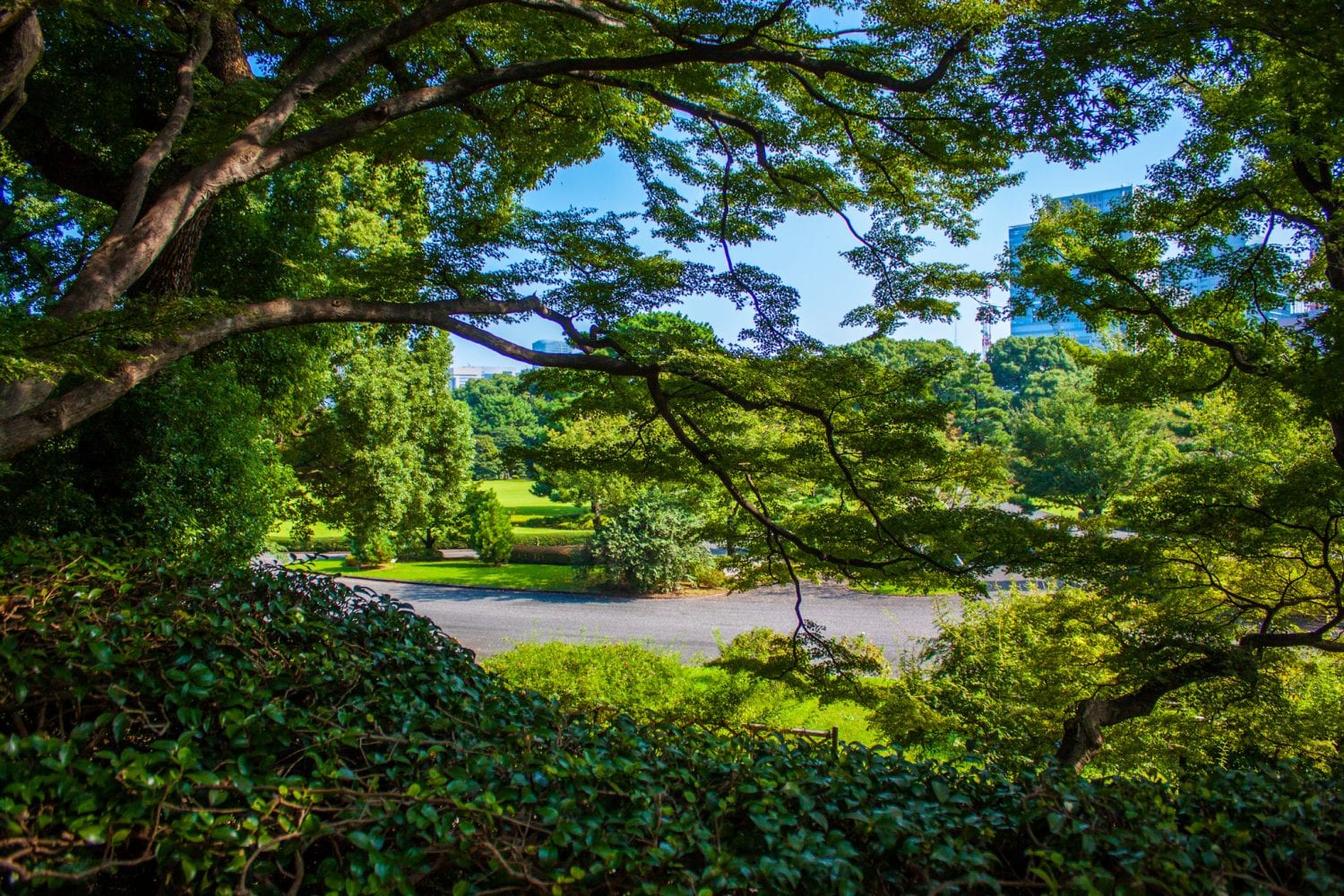
There were still a fair few flowers out in bloom, soaking up all that sunlight. The Fukiage Garden has all sorts of flora and fauna from all over Japan nestled into this little sanctuary in the middle of a modern city.
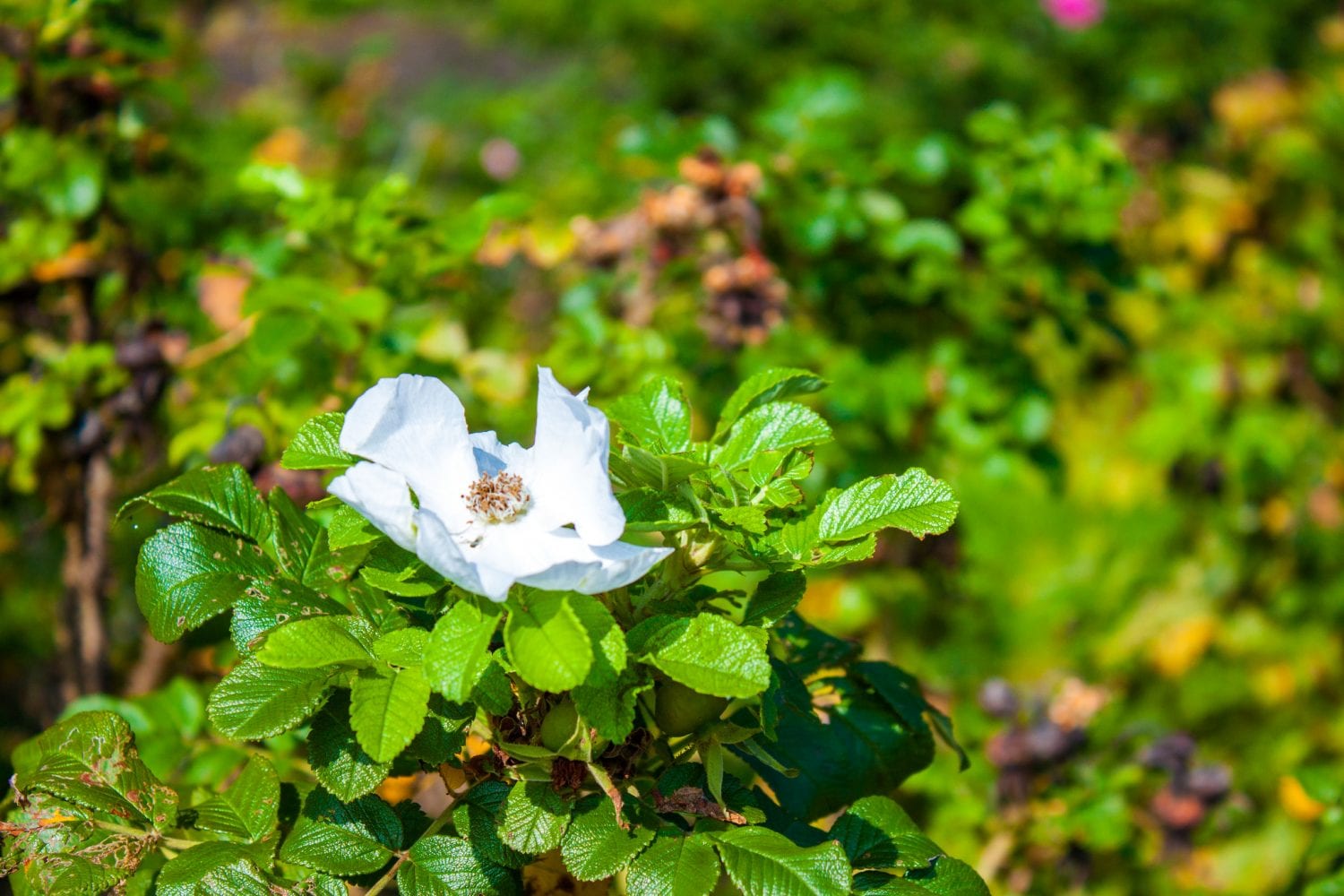
On the outskirts of the gardens, giving privacy to the Palace residence were dozens of rows of bamboo. Although it wasn’t as tall as other bamboo forests, it was still fascinating to study these trees in their natural habitat.
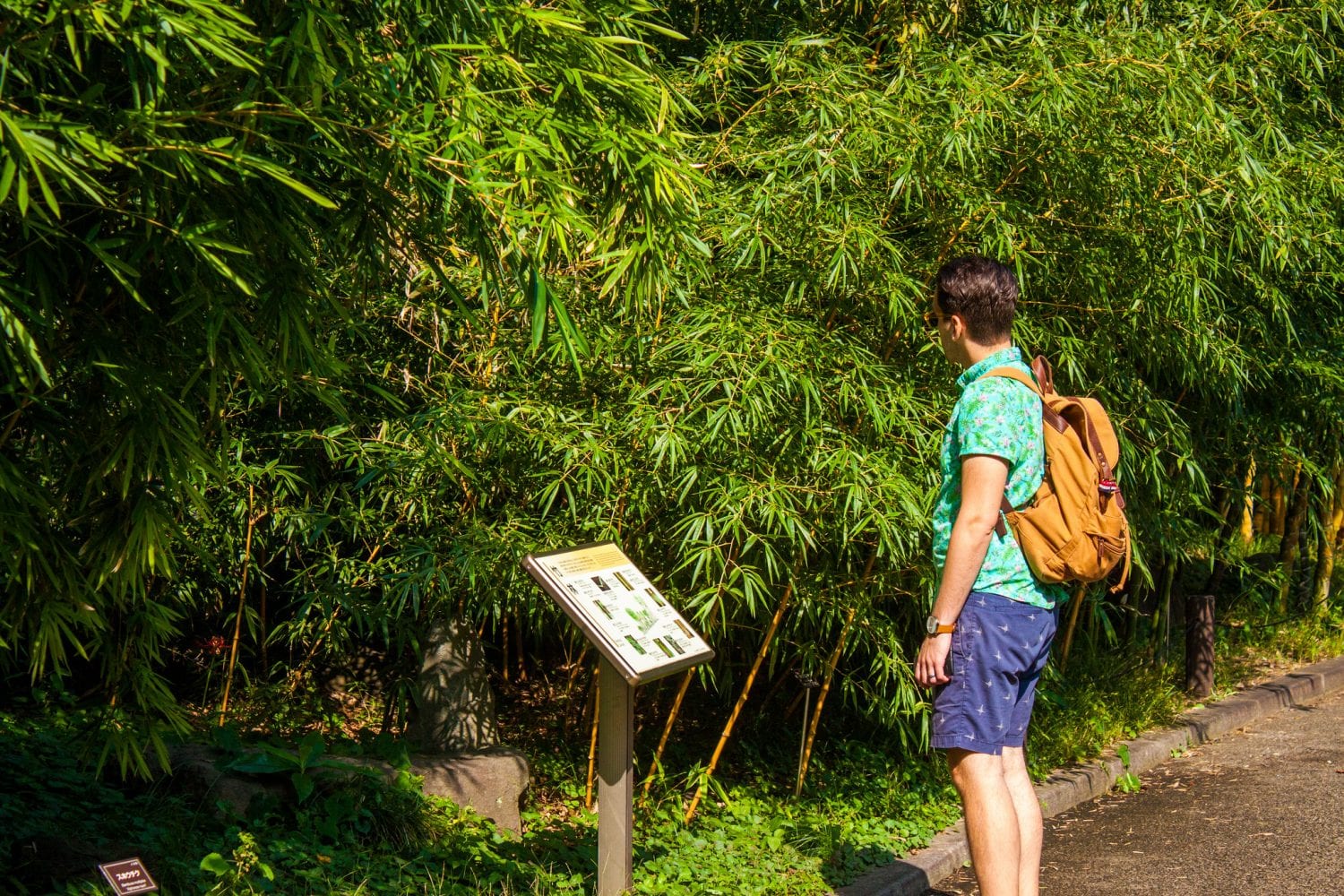
Towards the northeast part of the park is the remnants of the old Edo castle. The stones are part of the old watch tower which once stood here. Looking out over the moat and to the city beyond. The castle was originally built in 1638 and at the time had the tallest tower in Japan’s history. But in a short few years, it has been destroyed by the fires that rampaged the city and was never rebuilt.
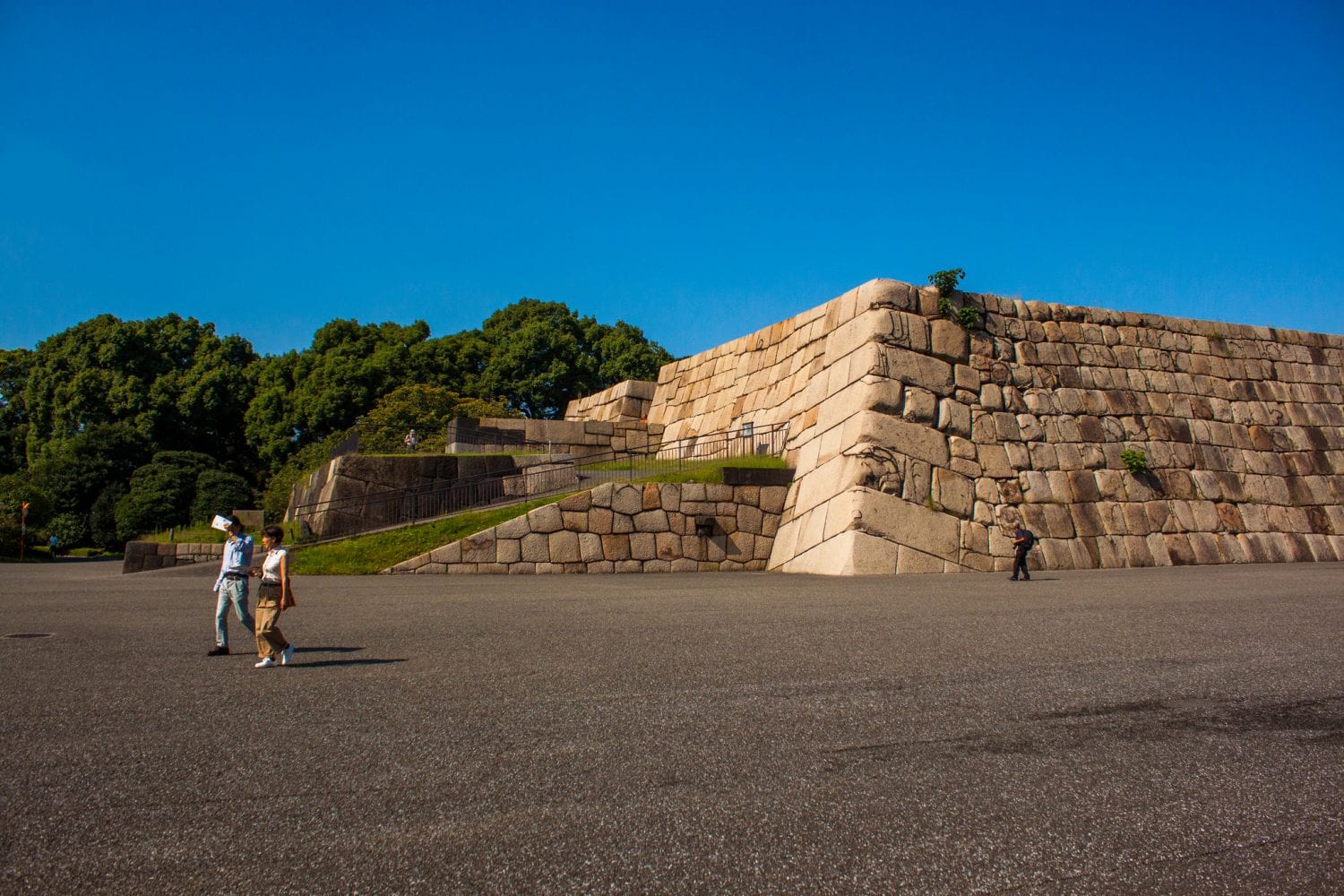
Beyond the trees to the east of the old tower, stand an octagonal shaped building, covered in bright mosaic tiles. This is Tōkagakudō, Peach Blossom Music Hall. This building is a newer addition to the property, built in 1963. The blue tiles set against the sky make it seem as though the building is disappearing into the skyline.
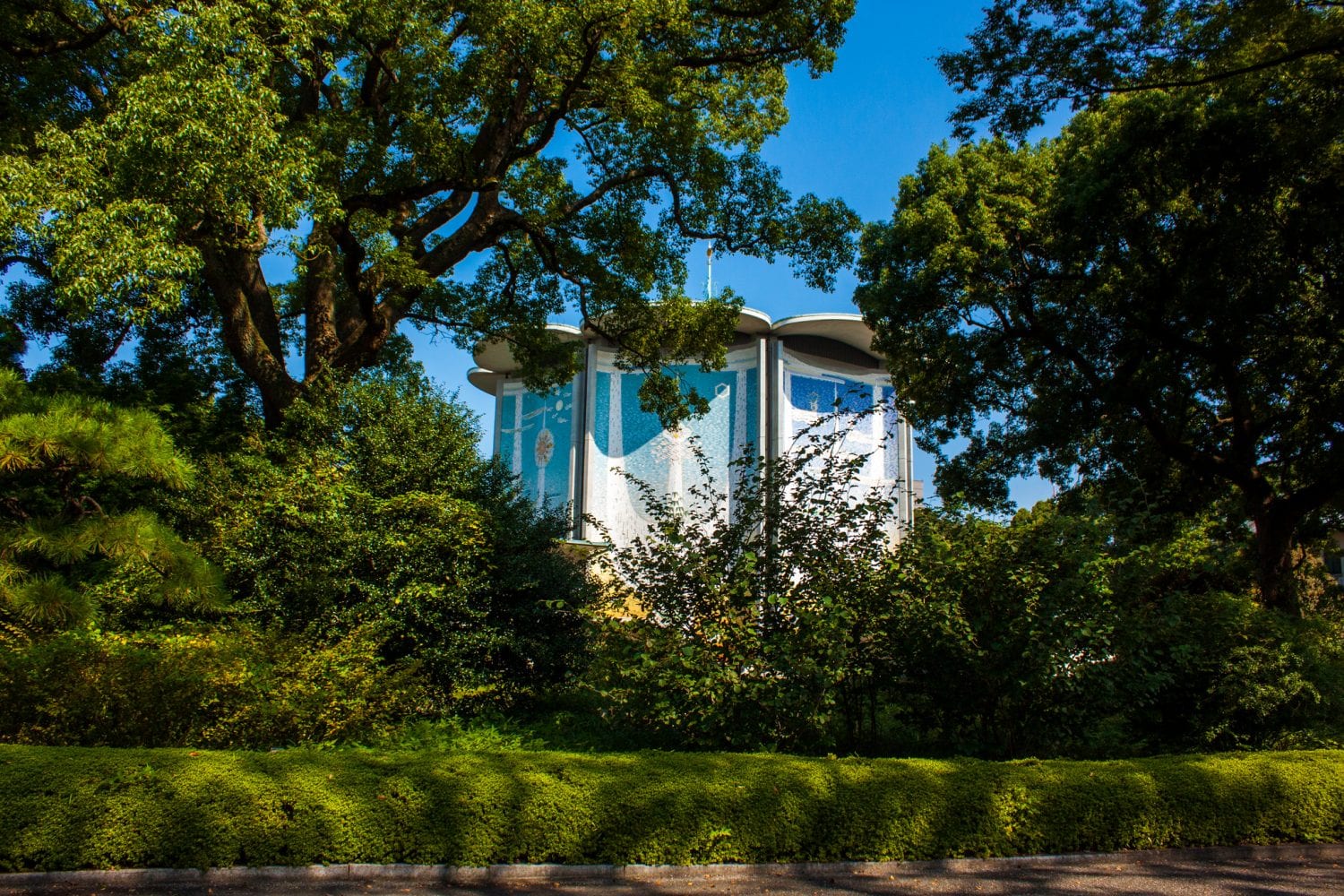
You could spend almost a whole day here. We found so many little benches and sitting areas where you could bring a book, or a well-charged laptop and relax all day. A great escape to the crowded and busy atmosphere of the rest of the city.
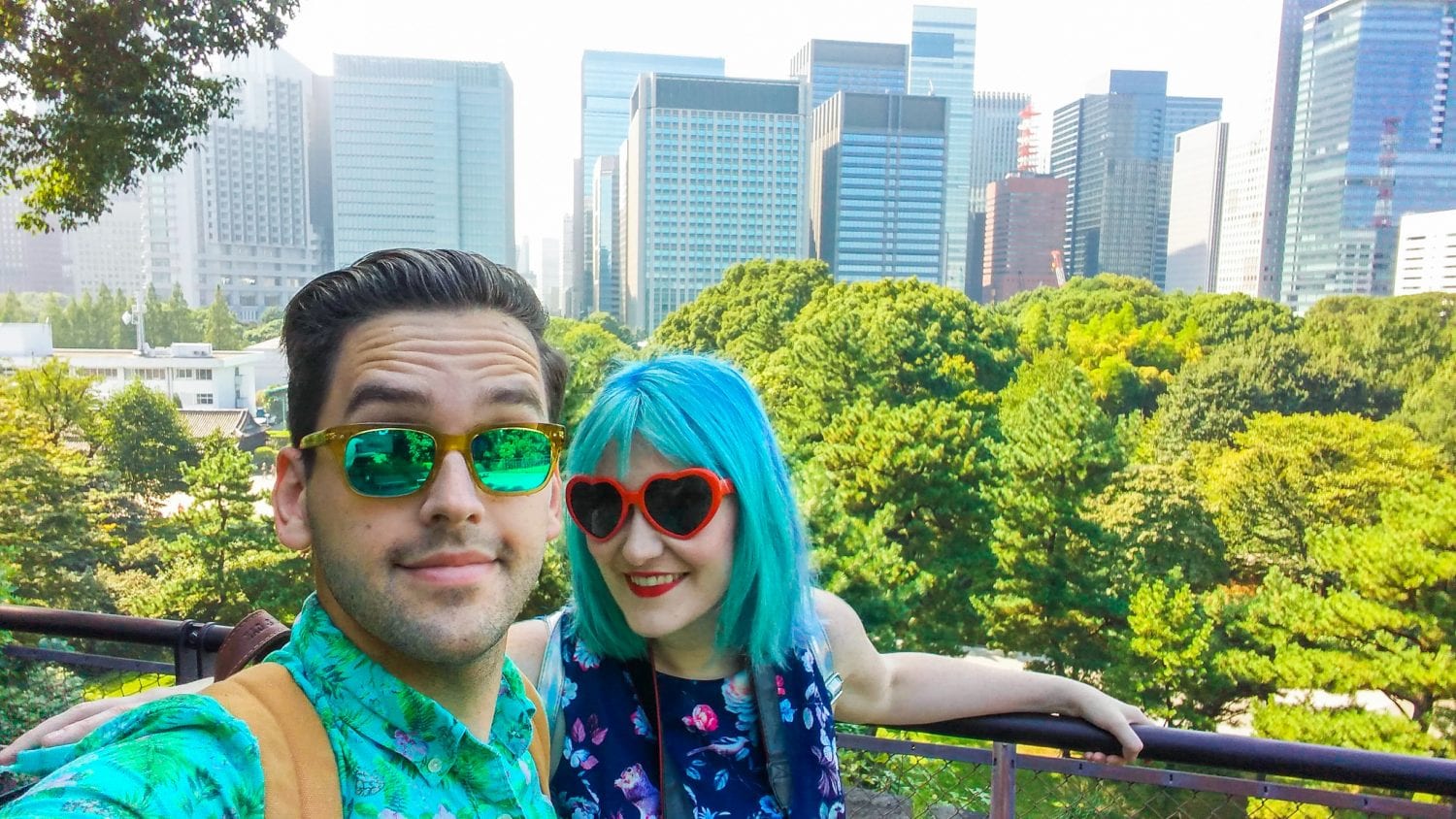
Towards the south end of the gardens are the ancient fruit trees. These fruit trees are very precious as they contain varieties of apples, pears and citrus that have long since gone extinct in other areas of Japan. I wanted to pick the apples off the tree so badly and taste a piece of history….but I’m too scared of getting into trouble.

The pomegranates looked like giant rubies hanging from lush branches.
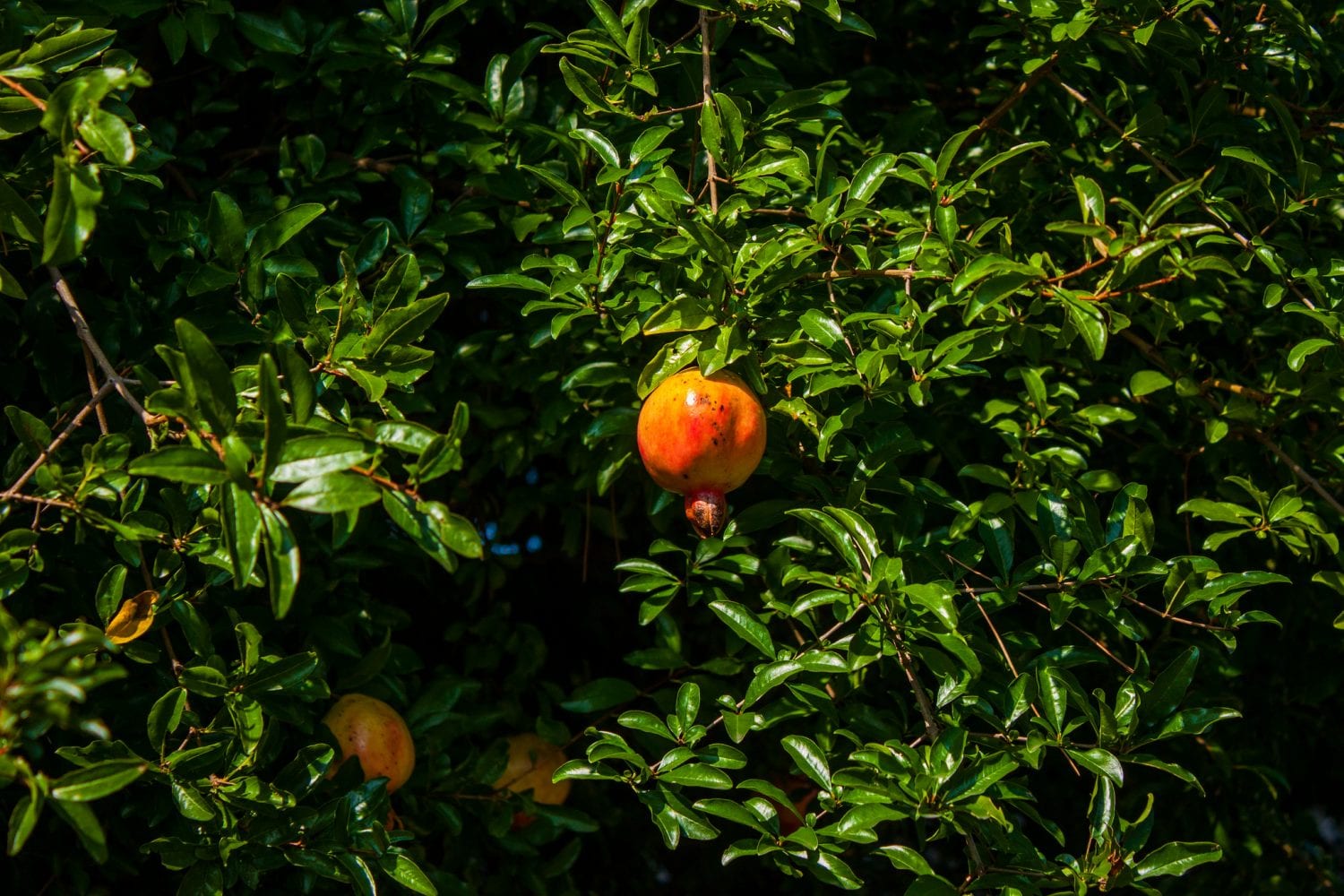
Even the apples seemed almost too perfectly shaped to be real.

There were tiny purple and green plants that looked like miniature grapes hanging off low-lying bushes. A Willy Wonka like factory full of otherworldly fruit.
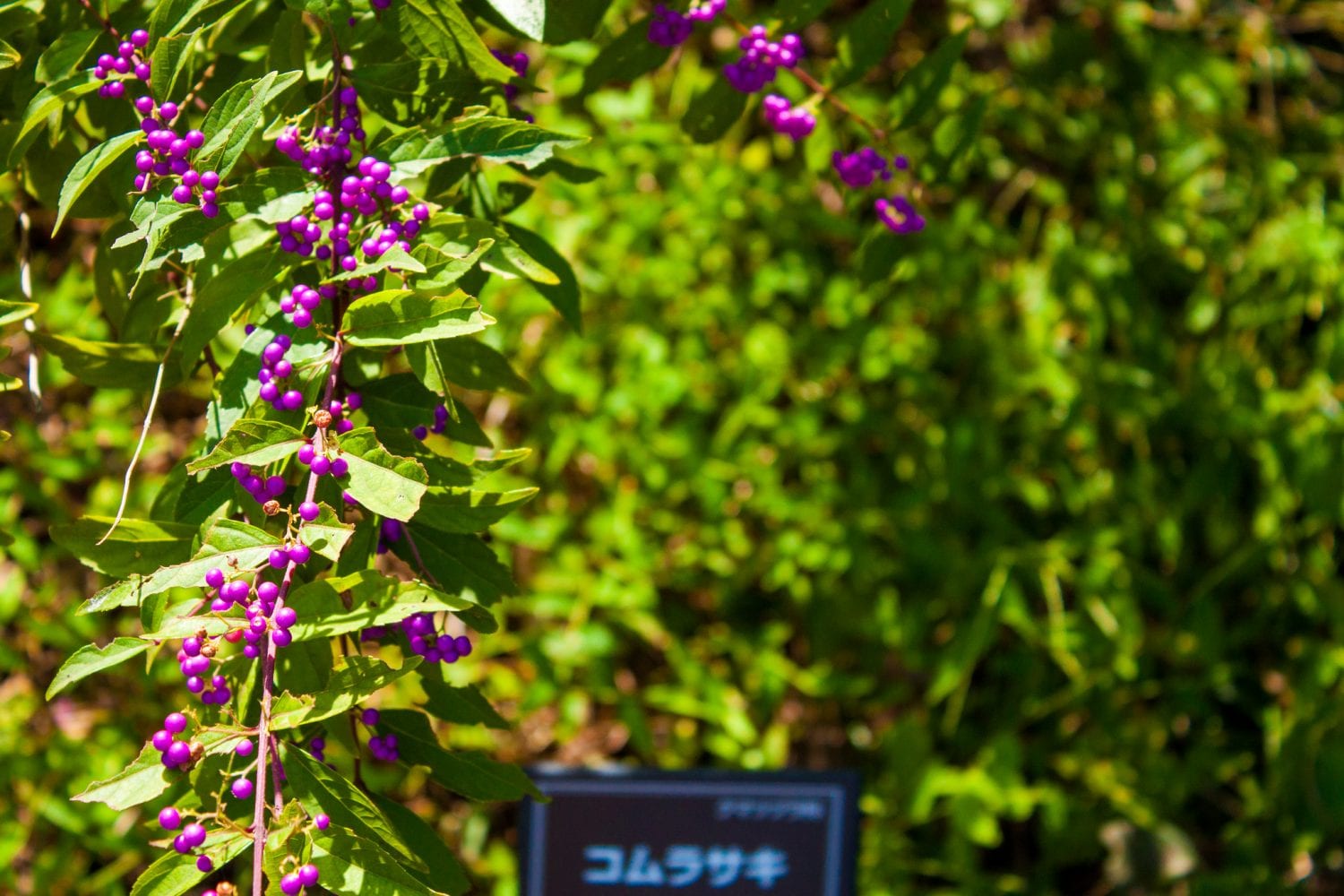
Towards the very southern tip of the Garden is the old guard tower. It now stands abandoned behind a locked gate. It seems oddly haunting; one can almost imagine the ghosts of old soldiers still stand on guard at those darkened windows. Locked behind this gate, it is a silently preserved piece of history.
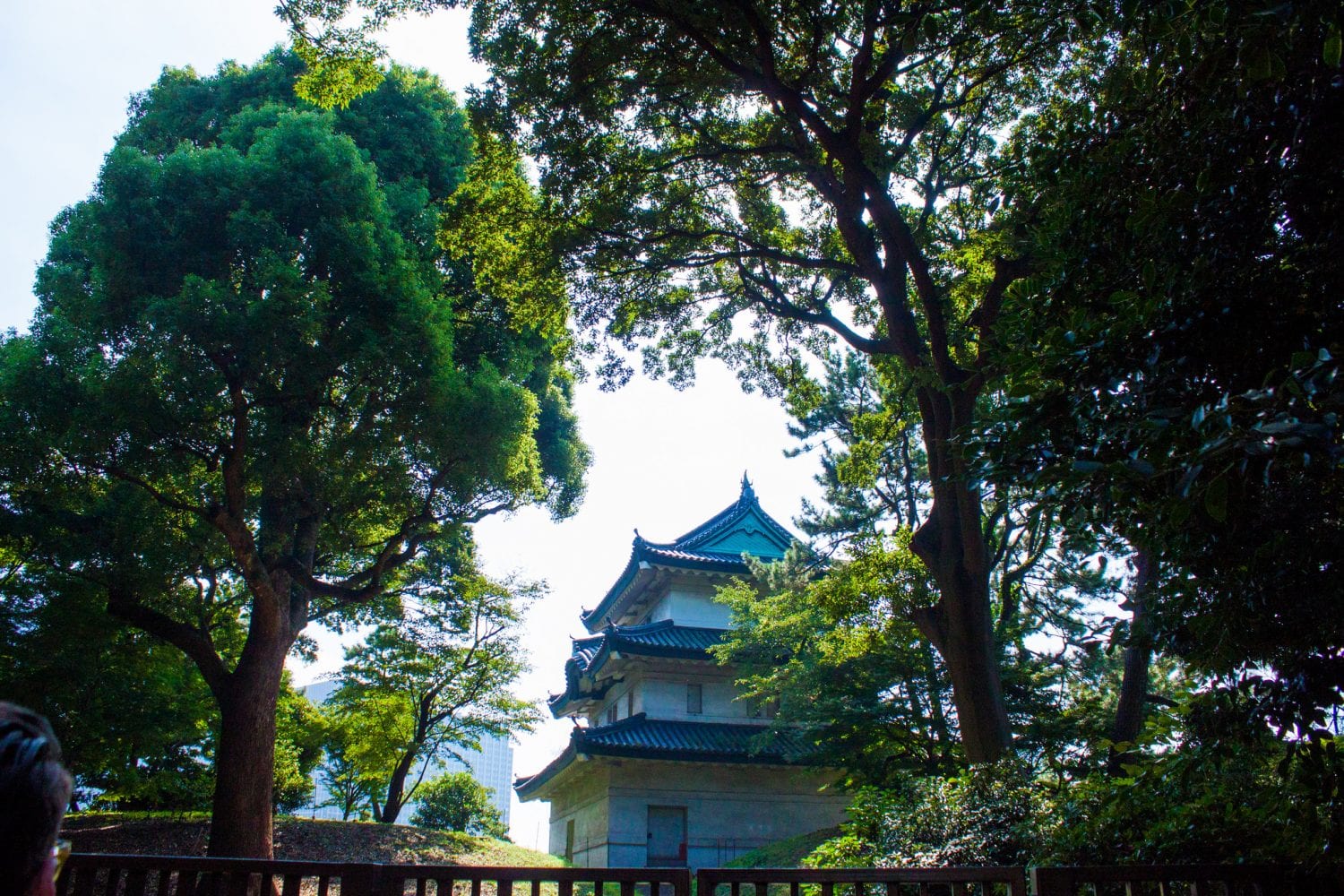
As you leave the gardens, you pass by some of the administration buildings towards the southern doors. Beautifully designed and despite being newer additions, look as if they have been there forever. This building often houses some rotating exhibitions which are free to the public. The one we saw when we were there was a small, but fascinating exhibit on Japanese calligraphy. No photos were allowed but trust me, it’s worth peeking your head inside.

The southern side gate is called the San-no-maru and was mainly used by servants coming and going from the residence when it was first buuilt. Today it lets you out onto the streets and beside the newly renovated Ninomaru pond.
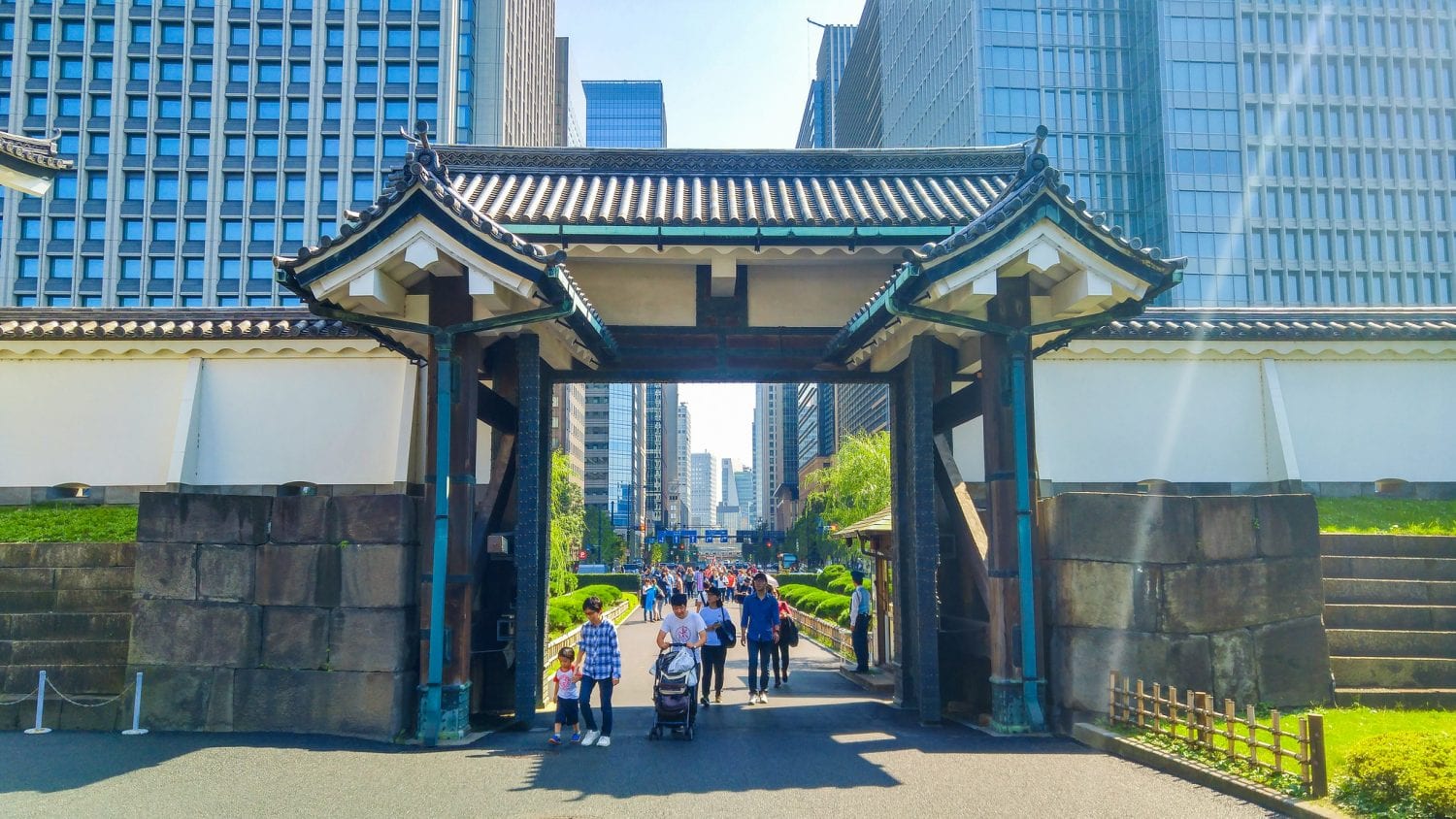
Inside the pond are thousands of koi. Each day they are fed from huge baskets of food lowered into the water at lunchtime. You can see them feeding as the surface of the water becomes almost a solid wall of fish once the food descends into the water.
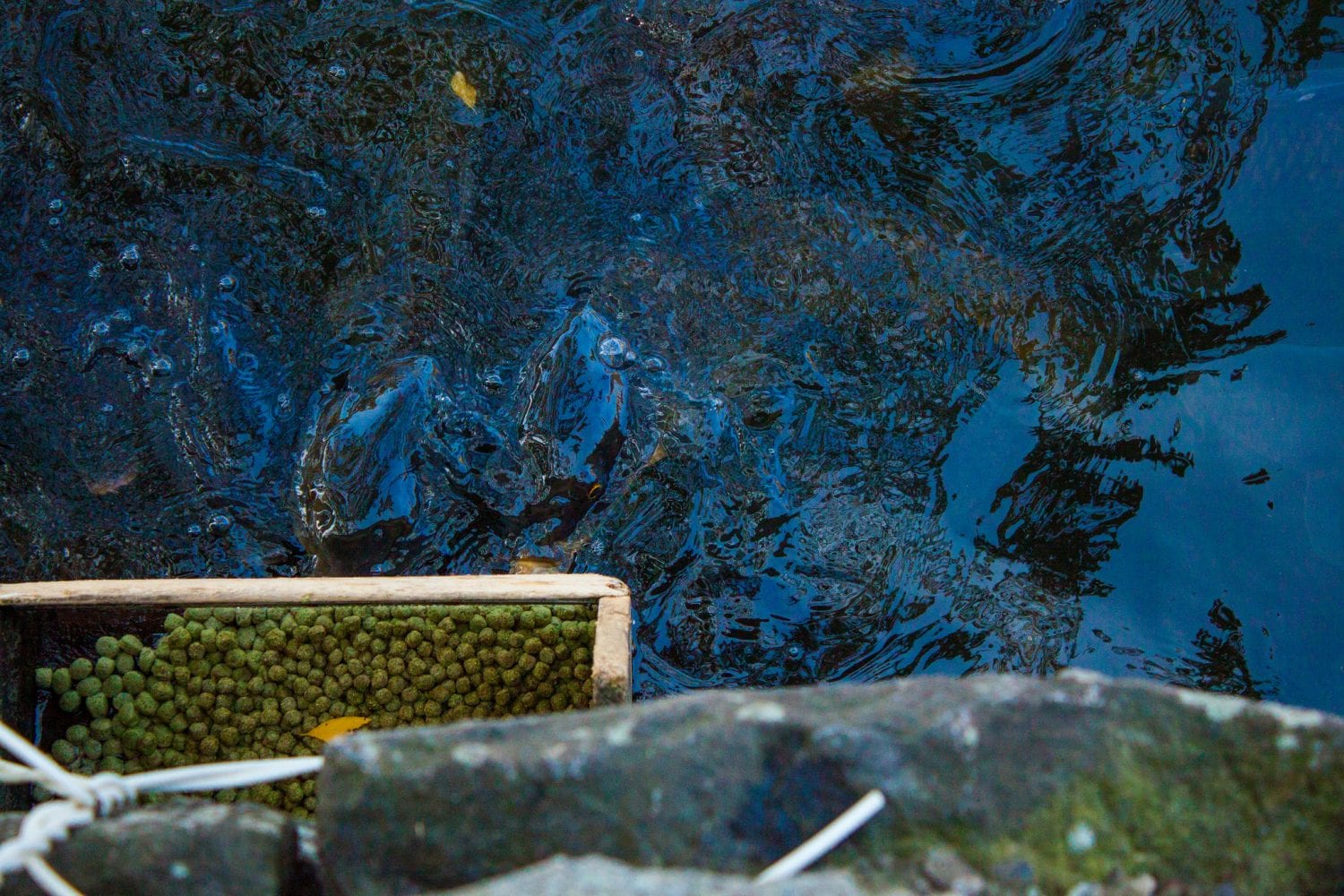
From the outside, along with the pond, you can see the guard tower from another angle, on the edge of the upraised garden.
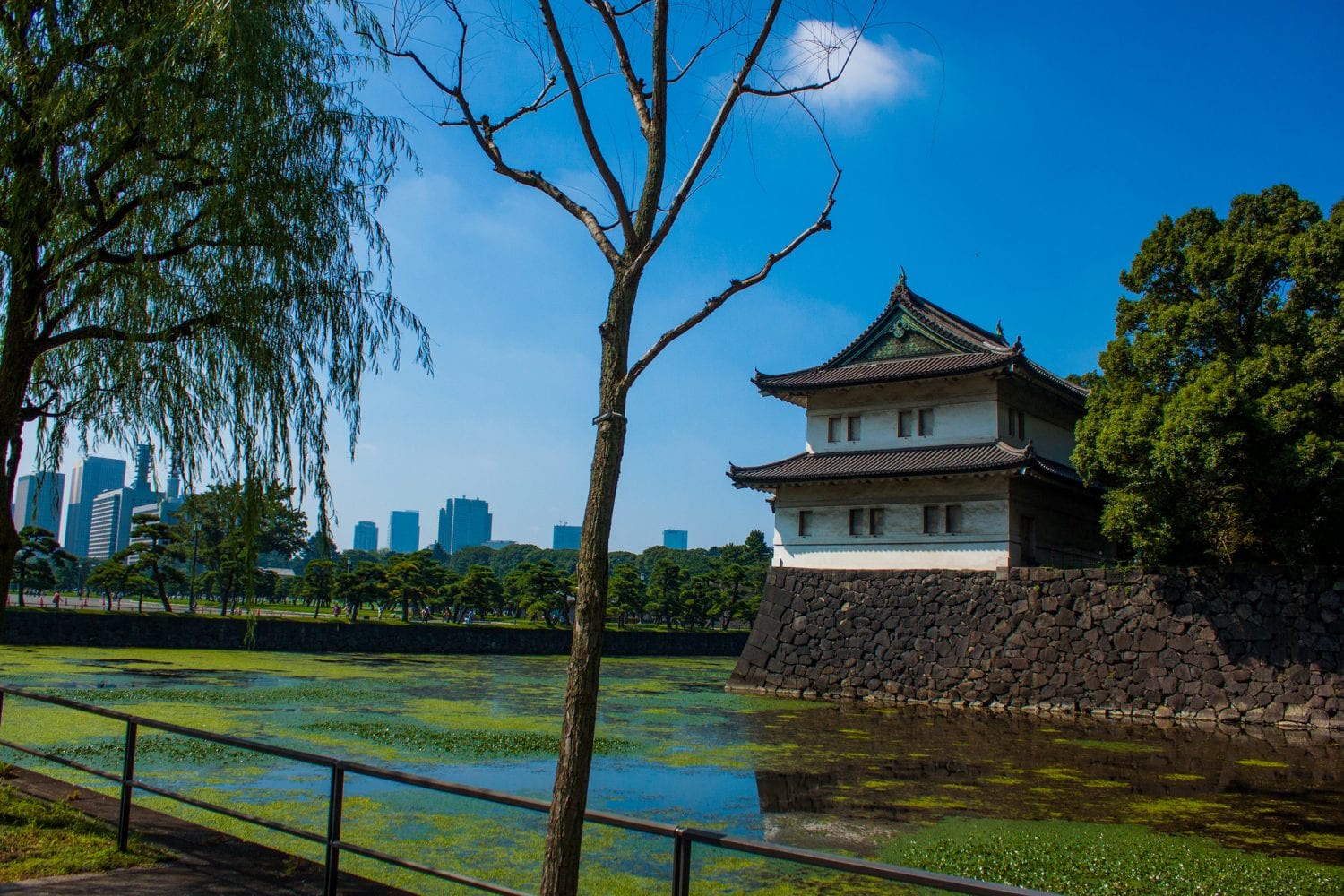
As you walk along the moat, you can also see the famous Nijubashi bridge. This bridge is the official entrance to the Palace Residence, and as such, has an element of grandeur and spectacle to it.
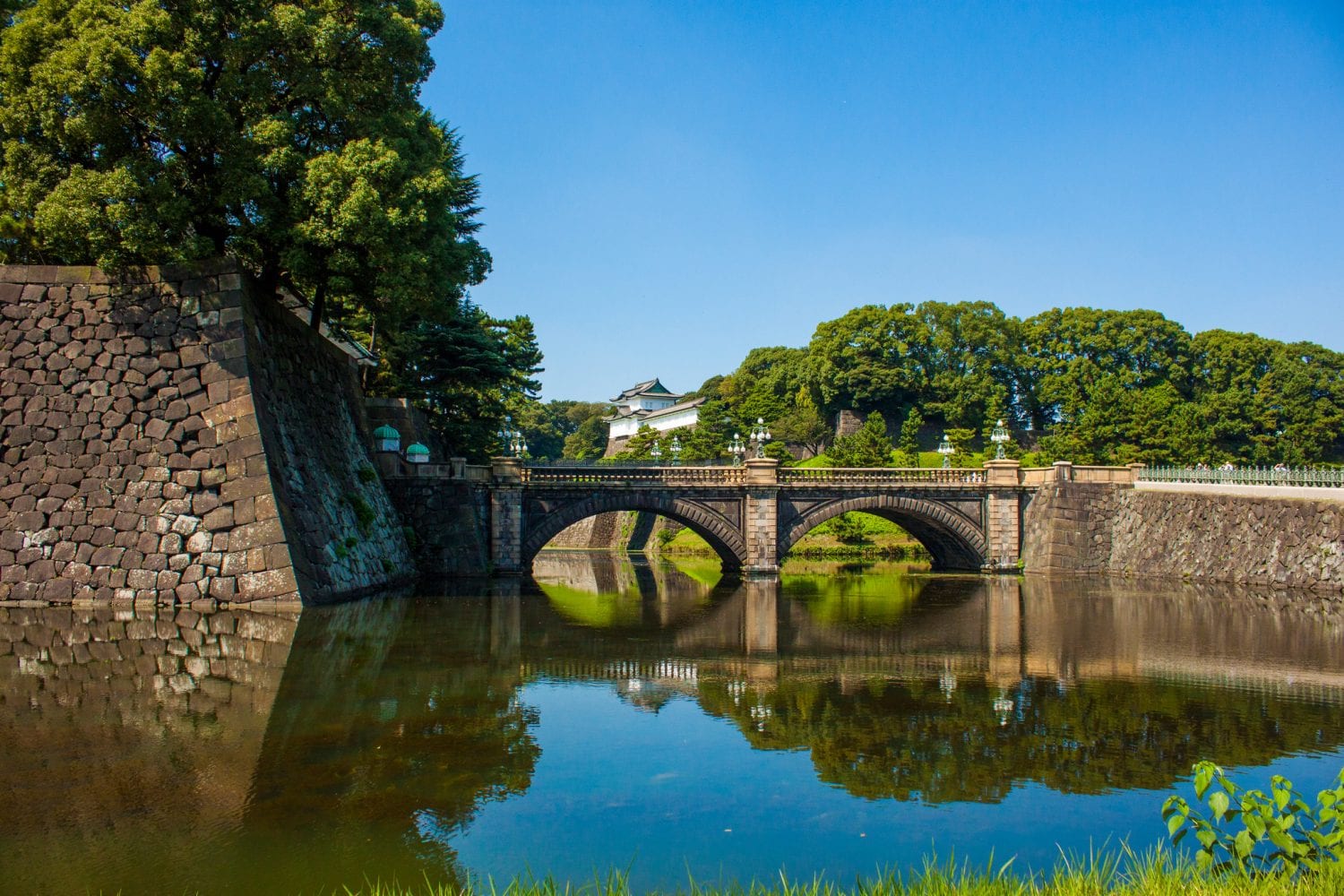
The bridge has become a beloved piece of architecture in Japan and is one of the more famous views in Tokyo. The bridge is made of stone with graceful arches and a bright teal copper railing. Green trees with leaves that look like fluffy clouds pop up behind the bridge, and the reflection of the bridge in the water makes it a photographers dream.
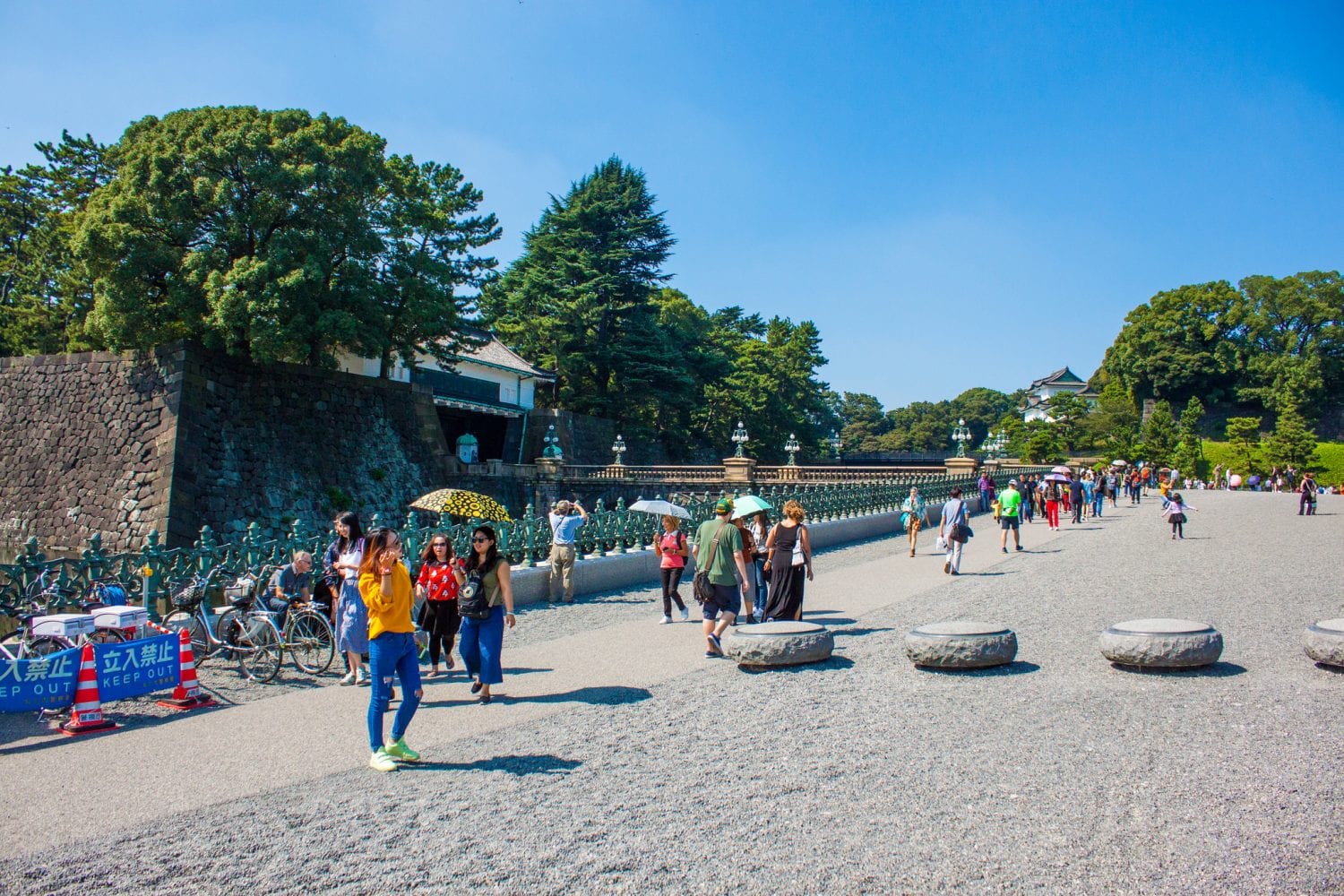
The spindles on the bridge look like blooming leaves with a nut hidden inside.

Once we finished at the Imperial Palace, we continued down the road towards Hibiya Park. The road had been completely closed down for a marathon and people were running, biking and walking down the enormous eight-lane roadway. We took the opportunity to walk down it as well and cheer on all the runners.
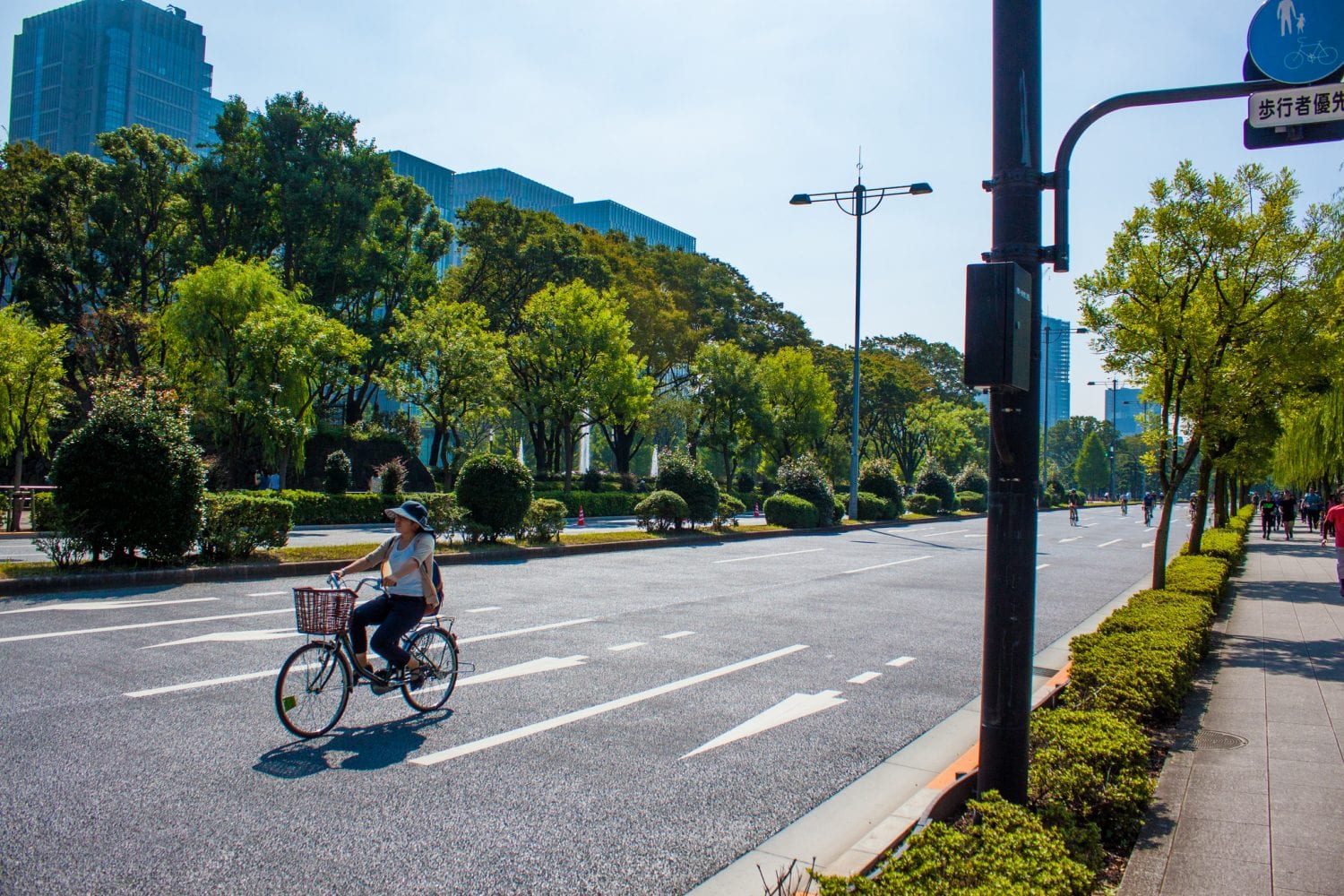
The imperial palace is the place to be for some peace and quiet after busy days exploring in the sometimes overwhelming Toyko.

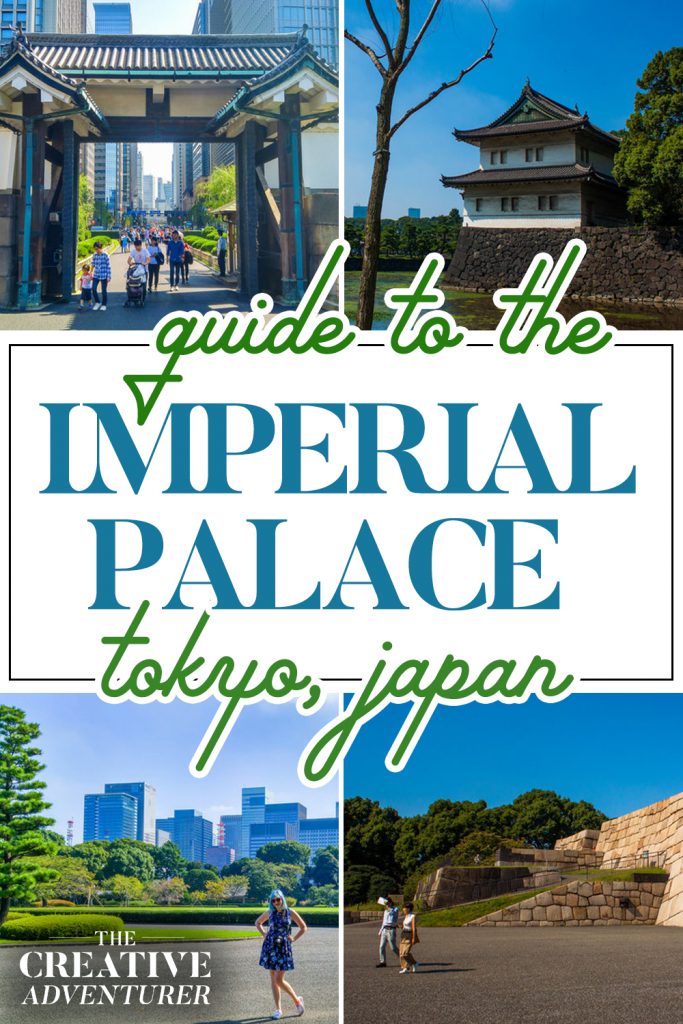


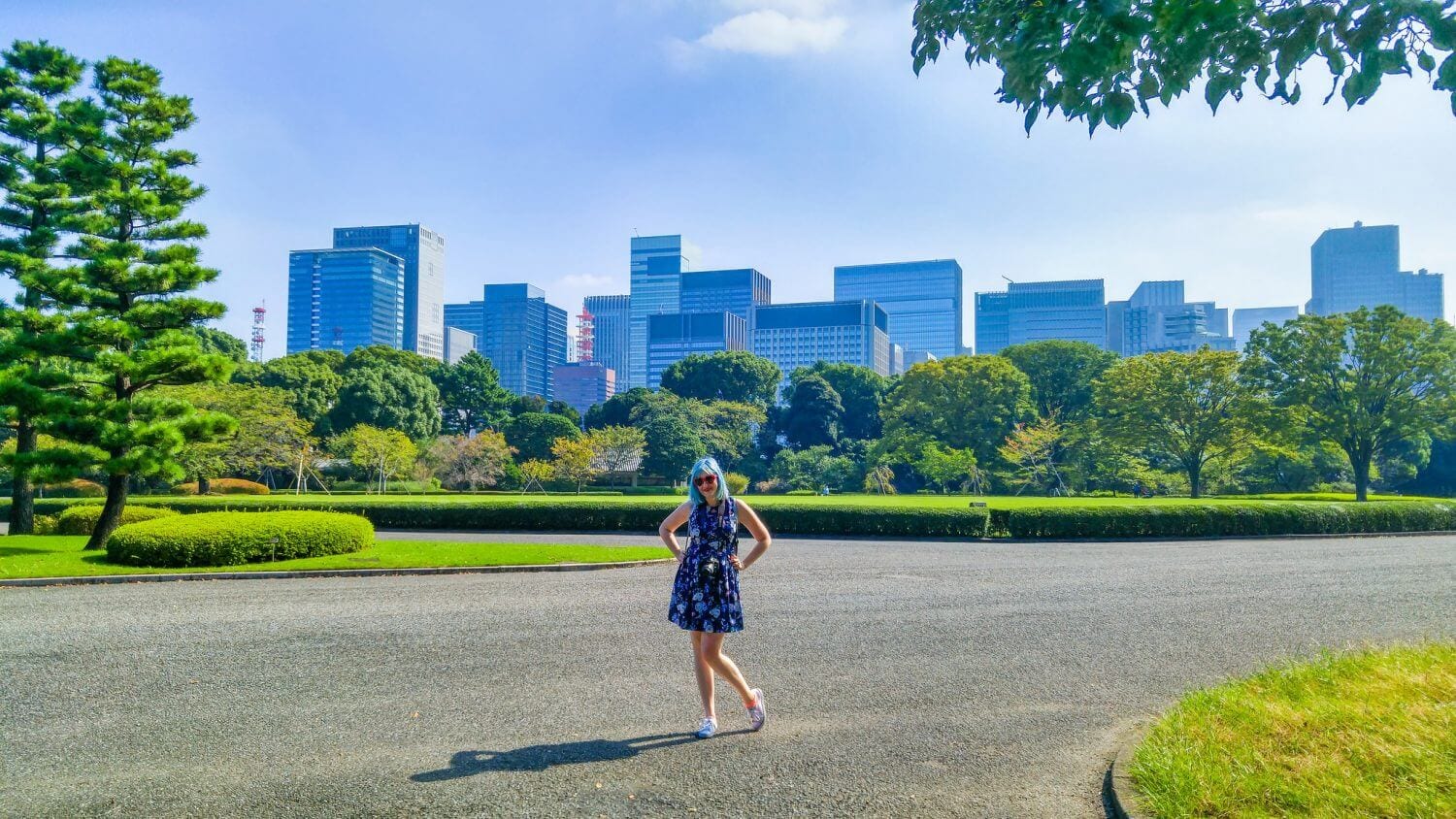

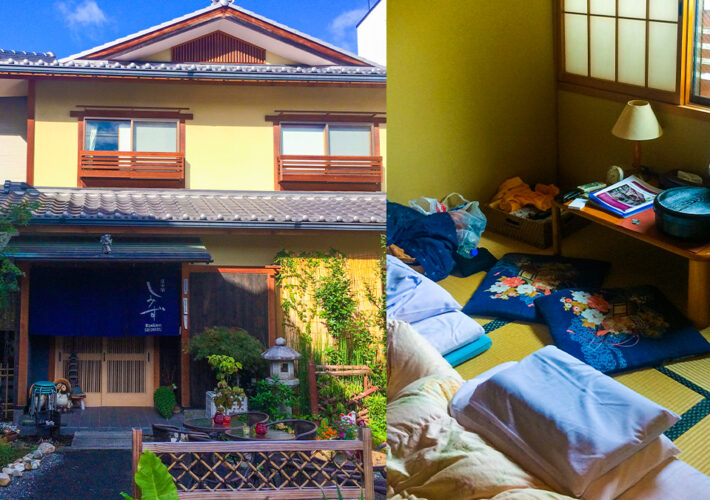
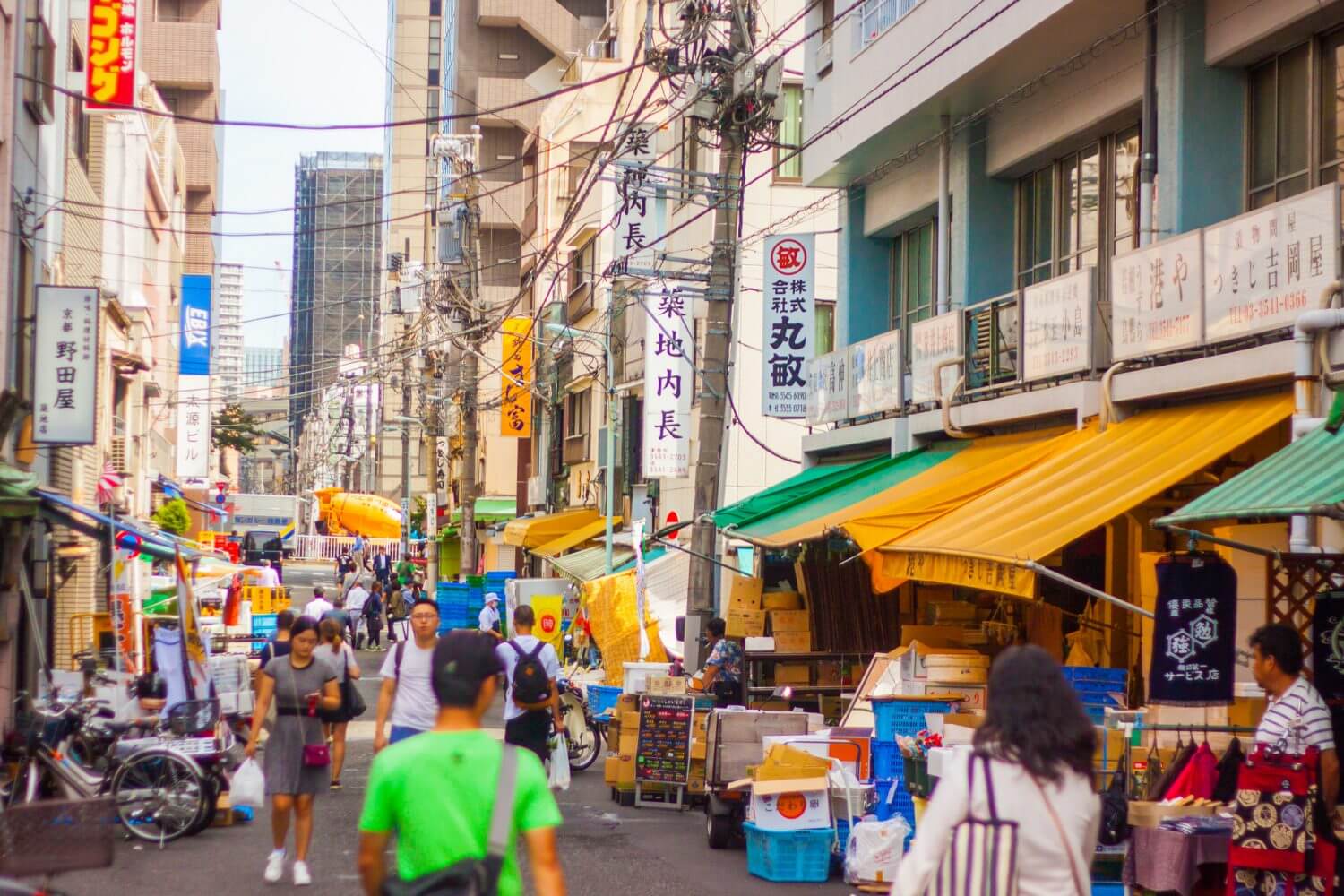
Leave a Comment